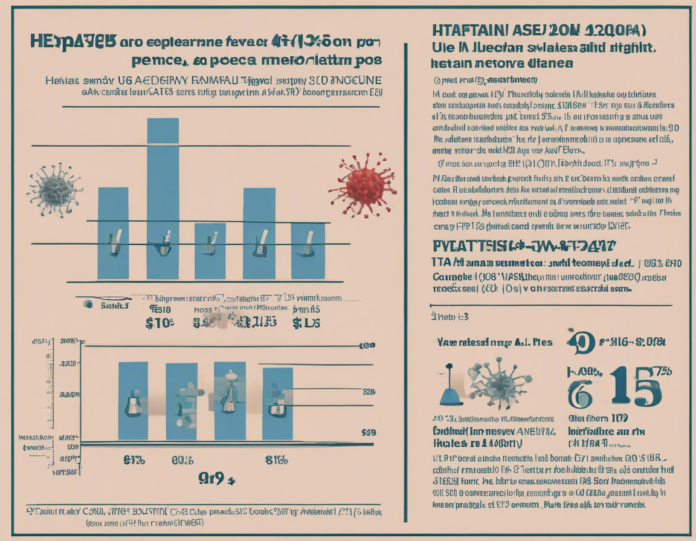Introduction
Hepatitis A is a highly contagious liver infection caused by the hepatitis A virus. The virus is primarily spread through consuming contaminated food or water. Hepatitis A can cause symptoms such as fatigue, nausea, abdominal pain, and jaundice. Vaccination is the most effective way to prevent hepatitis A infection, especially for individuals traveling to areas where the virus is prevalent or for those at high risk of exposure. However, the cost of the hepatitis A vaccine can be a concern for many individuals.
Hepatitis A Vaccine: Overview
The hepatitis A vaccine is a safe and effective way to protect against the virus. The vaccine is typically given in two doses, with the second dose administered six to twelve months after the first. The vaccine is recommended for:
- Travelers to countries where hepatitis A is common
- Men who have sex with men
- Individuals with chronic liver disease
- Individuals who use injectable or illicit drugs
- Individuals with clotting-factor disorders
- Individuals working in settings with a high risk of hepatitis A exposure
Cost of Hepatitis A Vaccine
The cost of the hepatitis A vaccine can vary depending on several factors, including the healthcare provider, insurance coverage, and any applicable discounts. On average, the cost of each dose of the vaccine can range from $50 to $150. This means that the total cost of the two-dose series can be anywhere from $100 to $300. Some pharmacies and travel clinics may offer the vaccine at a lower cost, so it is recommended to shop around for the best price.
Insurance Coverage
Many health insurance plans cover the cost of the hepatitis A vaccine, especially for individuals who are considered at high risk for infection. It is essential to check with your insurance provider to determine your coverage and any out-of-pocket expenses you may be responsible for. Some pharmacies and healthcare providers may also offer financial assistance programs or sliding scale fees for individuals without insurance coverage.
Cost-Effectiveness of the Vaccine
While the upfront cost of the hepatitis A vaccine may seem high for some individuals, it is essential to consider the long-term benefits and cost-effectiveness of vaccination. The cost of treating hepatitis A infection, including hospitalization and lost wages from missed work, can far exceed the cost of vaccination. In addition, vaccination helps prevent the spread of the virus to others, ultimately reducing the overall burden of the disease on healthcare systems and communities.
Accessibility of the Vaccine
The hepatitis A vaccine is widely available in the United States at healthcare providers’ offices, pharmacies, travel clinics, and public health departments. Many insurance plans cover the cost of the vaccine, making it accessible to individuals who are at high risk of infection. Some states also offer free or low-cost vaccines through public health programs for uninsured or underinsured individuals.
Side Effects and Safety
The hepatitis A vaccine is considered safe for most individuals. Common side effects of the vaccine include soreness at the injection site, headache, fatigue, and mild fever. Serious side effects are rare but can include allergic reactions. It is essential to discuss any concerns or medical conditions with your healthcare provider before receiving the vaccine.
Frequently Asked Questions (FAQs)
1. Is the hepatitis A vaccine required for travel?
– The hepatitis A vaccine is not required for travel to most destinations, but it is highly recommended for travelers to countries where hepatitis A is prevalent.
2. How long does the hepatitis A vaccine provide protection?
– The hepatitis A vaccine provides long-lasting protection, with immunity lasting at least 20 years and potentially lifelong.
3. Can children receive the hepatitis A vaccine?
– Yes, the hepatitis A vaccine is recommended for children starting at the age of 1 year. The vaccine is typically given in two doses, six months apart.
4. Can pregnant women receive the hepatitis A vaccine?
– Pregnant women should consult with their healthcare provider before receiving the hepatitis A vaccine to assess the benefits and risks.
5. Are there any contraindications to receiving the hepatitis A vaccine?
– Individuals with a severe allergy to any component of the vaccine or those who have had a severe allergic reaction to a previous dose of the vaccine should not receive the hepatitis A vaccine.
Conclusion
The cost of the hepatitis A vaccine may vary, but the long-term benefits of vaccination in preventing hepatitis A infection and its associated complications are substantial. Individuals at high risk of exposure should consider the cost-effectiveness of the vaccine and explore options for coverage and accessibility. Consult with healthcare providers, insurance providers, or public health departments to discuss the cost, benefits, and safety of the hepatitis A vaccine.


Recent comments